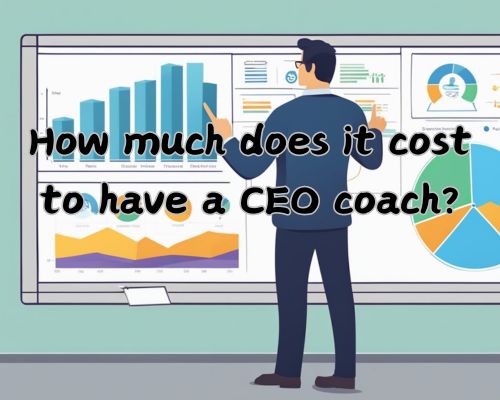How Much Does It Cost to Have a CEO Coach: An In-Depth Analysis

How Much Does It Cost to Have a CEO Coach: An In-Depth Analysis
Considering the pivotal role a CEO plays in steering an organization, investing in executive coaching can be one of the most strategic moves for both personal and organizational growth.
The cost of hiring a CEO coach generally ranges from $200 to $500 per hour. This cost is influenced by factors such as the coach’s experience, the length of the engagement, and the level of customization required. For a comprehensive engagement, companies often allocate thousands of dollars per executive annually, recognizing the significant return on investment in leadership skills and effective decision-making.

Engaging a CEO coach is more than just a financial investment; it’s a commitment to enhancing leadership capabilities that drive success. Through individualized sessions, CEO coaching focuses on bolstering personal development and sharpening strategic insights crucial for today’s competitive business environment.
“Whether it’s through one-on-one sessions or group collaborations, the transformative impact on leadership skills is invaluable.” said Gines Satchi of Make It Happen Coaching.
By knowing the cost and understanding the impact of coaching, you are better equipped to make informed decisions about integrating these services into your organization.
Embark on this journey with a clear vision, and discover how investing in executive coaching can elevate your leadership to the next level.
Understanding the Costs of Executive Coaching
When considering the costs of hiring a CEO coach, it’s crucial to consider factors influencing the pricing, the types of services available, and the common fee structures.
Factors Influencing Coaching Fees
Several elements can affect executive coaching rates. The experience and credentials of the executive coach play a significant role. Coaches with extensive backgrounds or specialized expertise often command higher fees.
Market demand also impacts pricing. In-demand coaches with proven success may charge more.
Additionally, the geographical location of the coaching practice can influence rates due to varying regional costs. Lastly, the complexity of the goals set by your organization can increase coaching fees.
Types of Coaching Services
Various coaching options cater to different needs.
One-on-one coaching focuses on personal goals and development. This individualized approach often appeals to senior executives seeking tailored support.
Group coaching brings teams together to enhance collaborative skills and foster leadership.
There are also more specific categories like business coaching, career coaching, and leadership coaching, each designed to target particular areas of professional growth.
Some coaches offer package deals that bundle sessions together, making them cost-effective for long-term commitments. For a reliable coach, see Gines Satchi of Make It Happen Coaching.
Average Price Range and Fee Structures
The cost of executive coaching can vary widely. On average, fees range from $150 to $500 per hour. Highly experienced coaches, especially those with specialized expertise, may charge as much as $3,000 per hour.
Coaching fees might be structured as hourly rates, while others offer fixed-price coaching packages. Both structures can offer flexibility, with some coaches willing to negotiate rates based on the scope and duration of the engagement. Understanding these options ensures you make an informed choice that aligns with your budget and development goals.
Evaluating the Return on Investment
Evaluating the ROI of CEO coaching involves assessing both tangible and intangible outcomes. The impact spans across enhanced leadership skills and improved team dynamics, contributing significantly to personal and organizational goals.
Benefits of Executive Coaching
Executive coaching offers numerous benefits to senior executives and organizations.
It enhances leadership development by building competencies such as emotional intelligence and effective delegation.
Improved communication skills are often a result, facilitating better team interactions and overall productivity.
Leadership assessments during coaching engagements provide tailored feedback, addressing specific areas like career transitions and personal growth.
Moreover, coaching can lead to significant advancements in team performance and organizational effectiveness, enhancing the company’s ability to meet its strategic objectives.
Coaching firms often report that executives who invest in professional development through coaching are better equipped to navigate complex challenges, driving organizational success.
Measuring Executive Coaching Outcomes
Measuring the outcomes of executive coaching involves analyzing both qualitative and quantitative aspects.
Quantitative measures can include productivity improvements and metrics related to return on investment (ROI). For example, the ROI can be substantial. Figures as high as 788% have been documented due to gains in employee retention and productivity.
Qualitative aspects focus on individual and team growth, including enhanced communication skills and leadership capabilities. Feedback from leadership assessments during individual coaching sessions provides insight into personal and professional development.
Tracking these outcomes ensures that the investment in coaching engagements is justified. A systematic approach to measuring these factors reveals the depth of impact that executive coaching can deliver.

